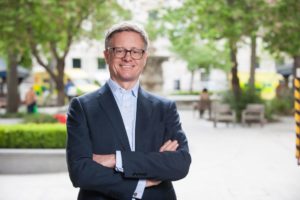
The COVID-19 Cardiovascular Conference, hosted as a live webinar by The Imperial College Network of Excellence in Vascular Science at Imperial College (London, UK), has heard about experiences from both Italy and the USA, as well as details of the establishment of an emergency field hospital in London’s Docklands (UK).
In a session entitled “A cumulative clinical experience of COVID-19”, chaired by Jamil Mayet and Ramzi Khamis (co-heads of the cardiology COVID-19 response at Imperial College Healthcare Trust), the online audience were given a view of how cardiologists around the world are reacting to the pandemic.
Detailing the experience from Italy, Alfonso Ielasi (Milan, Italy) started by saying that the increasing number of cases was “something like a tsunami that swept up the Italian healthcare system”. He outlined how the regional healthcare system reorganised local services and introduced new measures to cover issues such as triage, changes to clinical and surgical activities, and the need for retired and newly qualified doctors to be added to the workforce. His take home messages were to “optimise medical resources and be inventive”, and make hospitals safe for patients and staff. He also stressed the need to make chest pain patients aware of the need to call an emergency number as soon as possible.”
From New York, USA, Ajay Kirtane (Columbia University Irving Medical Centre/NewYork-Presbyterian Hospital) reported a cardiac perspective on the pandemic. He advised the online audience to “know your pulmonary/ICU medicine”. Other learnings from New York were that a range of other cardiac syndromes have been observed, such as type II myocardial infarction and myocarditis, “arrhythmias abound”, and patients with cardiac manifestations are among the sickest COVID-19 cases. In shock states, Kirtane indicated that there appears to be less of a need than anticipated for full support, for example through extracorporeal membrane oxygenation (ECMO), and he reminded the audience to consider transition of care from COVID areas to non-COVID areas. He echoed lelasi’s point on the “ancillary and collateral damage” caused by COVID-19, with patients disincentivised to present at hospitals.
Direct from the clinical control centre of the Nightingale Excel, an emergency field hospital in London’s Docklands (UK), deputy director Richard Schilling (St Bartholomew’s and the Royal London NHS Trust, London) shared details on its establishment. As the director, Ben O’Brien, is currently unwell, Schilling is also now the acting director. His tips on how to get started included the need to “get good people who ‘do’”, and “ruthlessly delegate authority”. He also emphasised the importance of making sure that everyone understands their role and of trying to “chunk up” the work rather than attempting to tackle the problem in its entirety.
The clinical model at the Nightingale consists of 43 beds under the supervision of one ICU consultant, two to three intermediate doctors who can alert the consultant to problems, and two to three junior doctors. Each six beds will have a specialist nurse. Schilling finished his virtual presentation with an instruction of not working to usual structures and processes and said: “Try to remember, we cannot fail—we can only do our best”.










